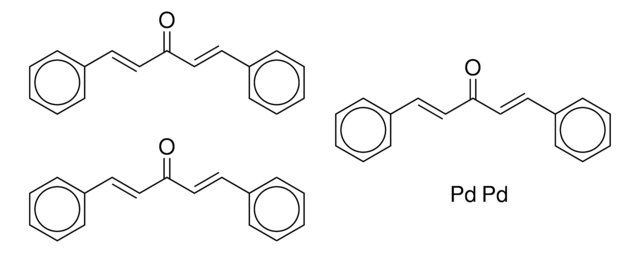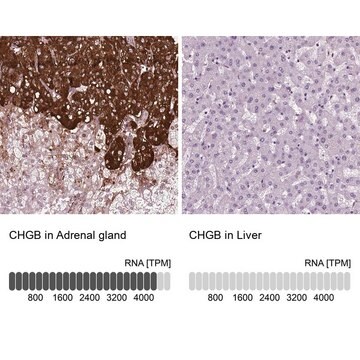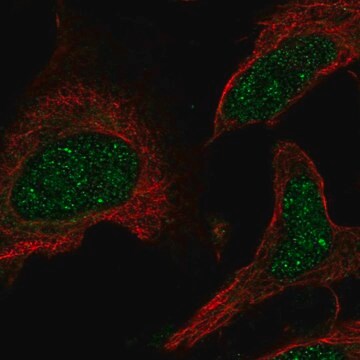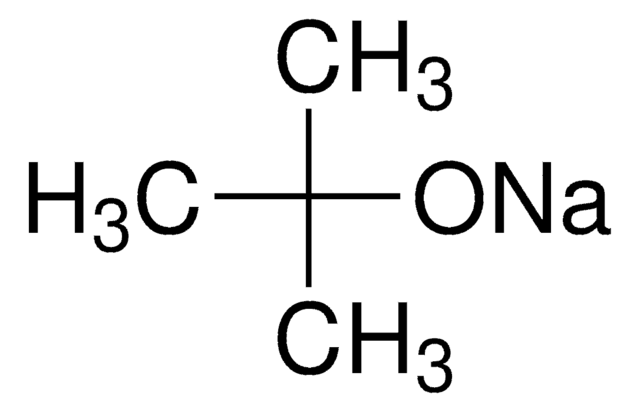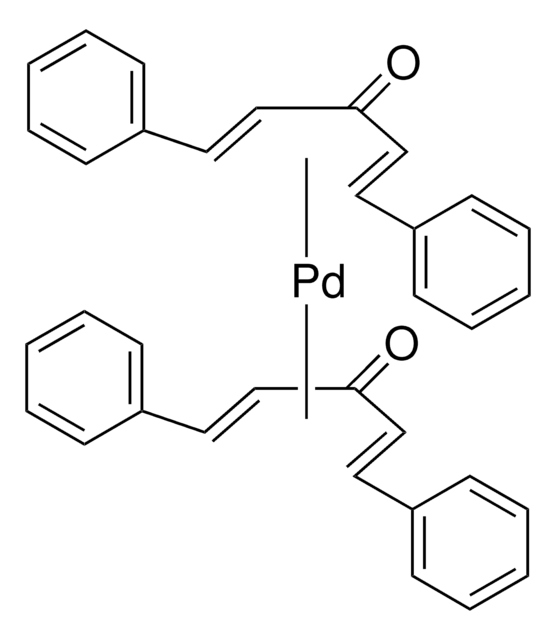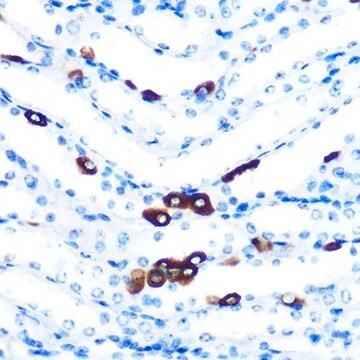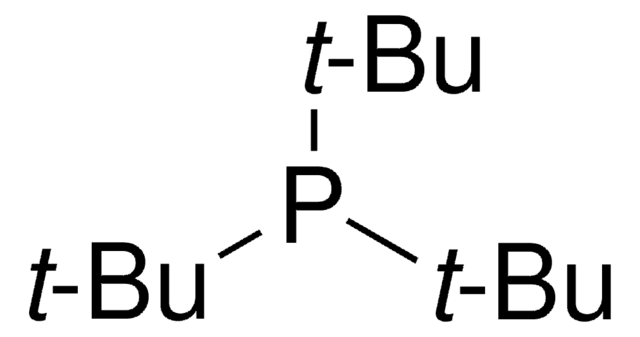PLA0016
Rabbit anti-MDC1 Antibody, Affinity Purified
Powered by Bethyl Laboratories, Inc.
Synonym(s):
Em:AB023051.5, KIAA0170, NFBD1, homologue to Drosophila photoreceptor protein calphotin, mediator of DNA-damage checkpoint 1, nuclear factor with BRCT domains 1
About This Item
WB
western blot: 1:2000-1:10000
Recommended Products
biological source
rabbit
Quality Level
antibody form
affinity purified immunoglobulin
antibody product type
primary antibodies
grade
Powered by Bethyl Laboratories, Inc.
species reactivity
human
technique(s)
immunoprecipitation (IP): 2-5 μg/mg
western blot: 1:2000-1:10000
accession no.
NP_055456.1
UniProt accession no.
shipped in
wet ice
storage temp.
2-8°C
Gene Information
rabbit ... MDC1(9656)
Immunogen
Physical form
Other Notes
Disclaimer
Not finding the right product?
Try our Product Selector Tool.
Storage Class
12 - Non Combustible Liquids
wgk_germany
nwg
flash_point_f
Not applicable
flash_point_c
Not applicable
Choose from one of the most recent versions:
Certificates of Analysis (COA)
Don't see the Right Version?
If you require a particular version, you can look up a specific certificate by the Lot or Batch number.
Already Own This Product?
Find documentation for the products that you have recently purchased in the Document Library.
Our team of scientists has experience in all areas of research including Life Science, Material Science, Chemical Synthesis, Chromatography, Analytical and many others.
Contact Technical Service